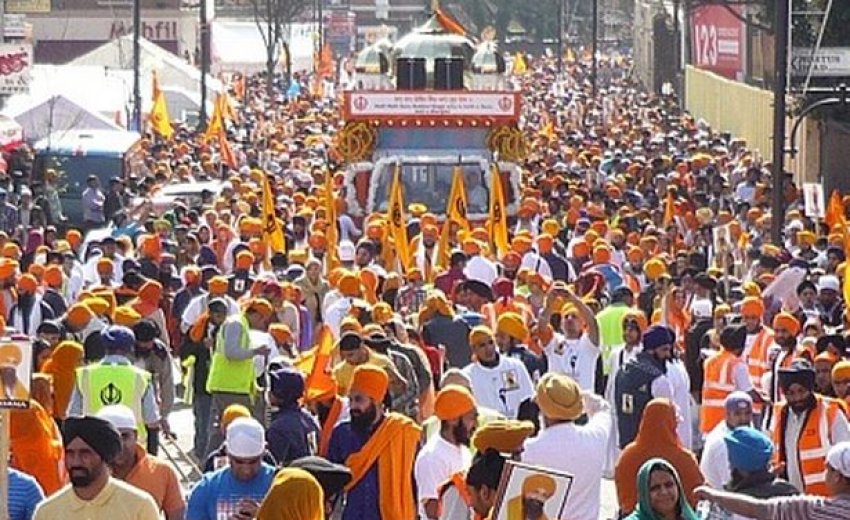Thousands of Sikhs in Southall will be holding a religious procession from Park Avenue Gurdwara through the streets of the surrounding area in celebration of Vaisakhi.
The Sikhs of Southall will join hundreds of thousands of Sikhs across the country by taking to the streets on Saturday (April 11) to celebrate Vaisakhi.
This Sunday (April 12) thousands of Sikhs will be holding a religious procession from Havelock Road Gurdwara at 11am, through the streets of the surrounding area, to finish at Park Avenue Gurdwara at 4pm.
They will be giving away free food to all and singing hymns, with displays of martial-arts also part of the celebrations.
This is an annual event that has been held by Sikhs all over the world for more than 300 years and, in Britain, for over 40 years.
A similar celebration took place in Hounslow last month.
By now, millions of Brits are used to seeing processions in celebration all over the land, from Southampton to Glasgow and dozens of places in between. Yet, very few outside of the Sikh community actually know what Vaisakhi is.
What is Vaisakhi?
For Sikhs, Vaisakhi is celebrated as the day of the creation of the Khalsa.
Culturally, much of India celebrates Vaisakhi as a harvest festival, something incorrectly associated with the Sikh celebration.
Vaisakhi is often also referred to as the Sikh New Year, something which is also untrue.
In 1699, in Punjab, the 10th Guru of the Sikhs, Guru Gobind Singh Ji, asked a crowd of thousands if anyone would be willing to give their heads to their Guru.
In response, five men – all of differing castes and backgrounds – stepped up to offer their heads to their Guru.
Anxious moments followed where Guru Gobind Singh Ji took the men into a tent, only to emerge with a bloody sword. However, the men emerged dressed in what is now recognised as traditional Sikh garbs.
Guru Gobind Singh Ji then publicly initiated the men, before asking them to do the same for him.
These men, later known as the Panj Pyare (five beloved ones), were the very first members of the Khalsa.
Who are the Khalsa?
The Khalsa is the eternal living embodiment of the Sikh Guru.
Any initiated Sikh is a member of the Khalsa and will thus represent this outwardly by wearing the Five K’s and in their everyday actions by living as a sant-sipahi (saint-soldier).
The role of the Panj Pyare is portrayed during Nagar Kirtans (neighbourhood hymn singing), where five members of the modern Khalsa will lead a procession, whilst prayers are recited and free food offered to all in the vicinity.
Nagar Kirtans are a traditional form of Sikh celebration and these days also showcases displays of Sikh martial-arts, have charity fundraisers and other forms of education and entertainment.
For Sikhs, Vaisakhi is a time for reflection, when people are more inclined to become initiated into the Khalsa.
This year there will be approximately 30 Nagar Kirtans throughout Britain, with anywhere from 1,000-1,5000 people following a procession. People from any background are welcome to join in and take part in all Vaisakhi celebrations.
